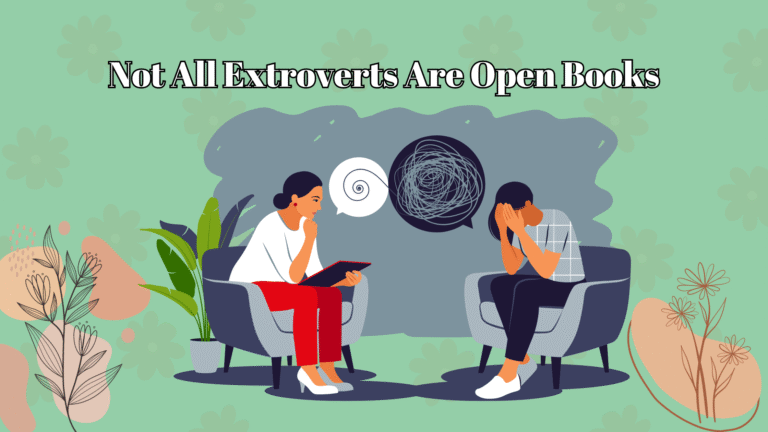
The constant stream of notifications, deadlines, and distractions can make it impossible to slow down and breathe. If you’ve ever caught yourself going through the motions without truly being present, you’re not alone. But there is a way to reconnect with yourself and your life. Developing a few consistent mindfulness habits can powerfully impact how you think, feel, and experience the world around you.
Mindfulness isn’t about perfection or becoming someone new — it’s about becoming more aware, more focused, and more intentional in your daily life. This article will explore five practical mindfulness habits that can genuinely transform your life this year. These habits are rooted in simplicity and effectiveness, offering a natural way to feel more grounded, clear-headed, and connected to what matters.
1. Start Your Day with a Morning Mindfulness Routine
The way you begin your morning often sets the tone for the rest of the day. Many people start their day by immediately checking their phones, diving into emails, or rushing through their routines. This reactive approach can lead to stress and anxiety before the day even begins.
Instead, consider adopting simple daily mindfulness practices to start your morning with intention. This could include:
- Sitting quietly for a few minutes to focus on your breath
- Setting a daily intention such as “I will approach today with patience”
- Journaling one or two things you’re grateful for
- Avoiding screens for the first 15 to 30 minutes after waking
Starting the day with even a few moments of stillness can increase mental clarity, reduce stress, and help you feel more in control.
2. Incorporate Breath Awareness Throughout the Day
One of the simplest mindfulness exercises for beginners is breath awareness. The breath is always with us, and learning to use it as a tool to calm the mind is both powerful and accessible.
Try this during stressful moments or when your mind feels scattered:
- Inhale slowly for four seconds
- Hold your breath for four seconds
- Exhale slowly for four seconds
- Hold again for four seconds
This method, known as box breathing, can reset your nervous system and bring your attention back to the present. Practicing breath awareness regularly helps you manage emotions, increase focus, and reduce reactivity.
Even one or two minutes of mindful breathing throughout the day can dramatically improve your mood and concentration levels.
3. Practice Mindful Eating
Eating has become a rushed, distracted activity for many of us. Meals are often consumed in front of screens or on the go, which leads to overeating, poor digestion, and a disconnected relationship with food. Mindful eating means engaging all your senses and staying present in the moment, appreciating the full experience of your meal.. It helps you enjoy your meals more and understand your hunger better. Instead of eating quickly or mindlessly, you slow down and:
- Enjoy the feeling, taste, and smell of your food while eating.
- Put your fork down between bites
- Avoid multitasking while eating
- Express gratitude before or after your meal
The benefits of mindfulness in eating include improved digestion, better portion control, and a deeper sense of satisfaction. Over time, mindful eating also helps you build a healthier, more intuitive relationship with food.
4. Use Mindfulness to Manage Stress
Stress is a part of life, but mindfulness teaches us how to respond to it with greater awareness and calm. One of the most effective mindfulness techniques for stress relief is the body scan.
It means paying careful attention to your body, moving from your feet to your head, and just noticing sensations without saying if they’re good or bad. Body scans can be done while lying down, sitting, or even standing.
In addition, mindfulness meditation for anxiety helps you observe your thoughts without becoming overwhelmed by them. Instead of fighting or avoiding anxious feelings, mindfulness encourages a curious, compassionate awareness of what’s happening inside you.
Practices like these help you regulate your emotions, improve your resilience, and stay calm under pressure.
5. Reflect and Reset Before Bed
Your morning routine helps begin your day, and your nighttime routine can help you sleep better and feel more peaceful. One of the most overlooked yet effective mindfulness habits is reflecting at the end of the day. This doesn’t require a lot of time — just a few minutes to check in with yourself.
You can try the following:
- Write down three things you’re grateful for
- Reflect on your emotions: What made you feel happy, stressed, or proud?
- Set a calming intention for tomorrow
Practicing gratitude and reflection supports mindfulness and emotional well-being. It helps you process your experiences, celebrate small wins, and let go of lingering tension.
If you’re new to mindfulness, start small. Just thinking about what went well during your day can shift your perspective and help you get more in touch with your feelings.
Additional Ideas to Build Mindfulness Into Everyday Life
Mindfulness doesn’t require a quiet room or special equipment. You can bring it into everyday activities with a little awareness and intention. Here are some extra mindfulness tips for beginners:
- Pause before answering emails or messages
- Notice the sensation of water on your hands while washing dishes
- Focus on your steps during a short walk
- Listen fully in conversations without planning your response
These moments may seem minor, but they train your brain to stay present and focused.
Summary: Five Mindfulness Habits to Start This Year
Below is a quick overview of the five habits discussed:
| Mindfulness Habit | Purpose |
| Morning routine | Starts the day with clarity and intention |
| Breath awareness | Reduces stress and improves focus |
| Mindful eating | Builds a healthy relationship with food |
| Stress relief techniques | Helps regulate emotions and calm the mind |
| Evening reflection | Supports better sleep and emotional balance |
Conclusion
Mindfulness is not a trend. It’s a way of showing up for your life more fully and with more intention. These five mindfulness habits are not about adding more to your to-do list — they are about doing the things you already do with more awareness and presence. No need to learn them all at once. Just focus on the one that feels right for you now. Build it into your routine slowly and consistently. Over time, these small shifts can lead to meaningful transformation in how you think, feel, and experience life. Whether you’re looking to improve your focus, manage stress, or simply feel more connected, mindfulness offers a path that is both powerful and practical. Begin today not perfectly, but intentionally, and see where it takes you.





Hey there!
Welcome to Moviezhive.com, where blockbuster entertainment is just a click away!
Stream a vast collection of Bollywood, Hollywood, and international movies for free—no subscriptions, no hassles.
What Makes Us Special?
✔️ Thousands of movies across all genres
✔️ Zero pop-up ads for seamless viewing
✔️ Advanced zero-buffering tech for smooth playback
✔️ Fresh titles added regularly
Can’t find a movie? Request it, and we’ll upload it fast!
Watch anytime, anywhere. Visit https://moviezhive.com now and start your movie adventure!
Enjoy the Show,
The Moviezhive Team